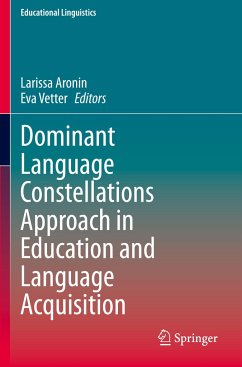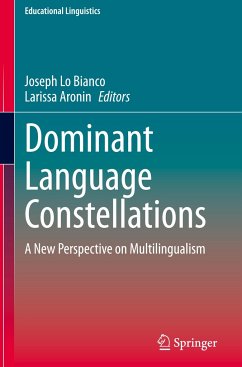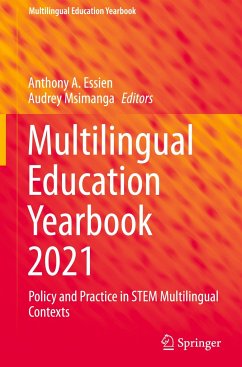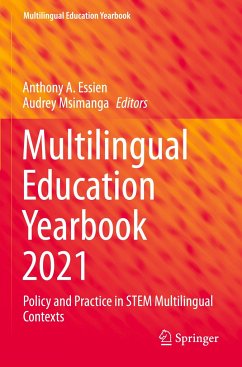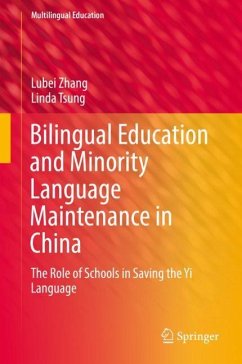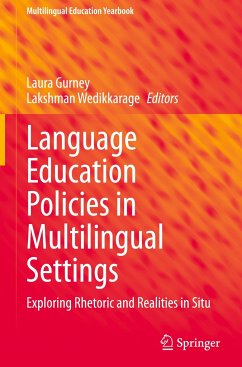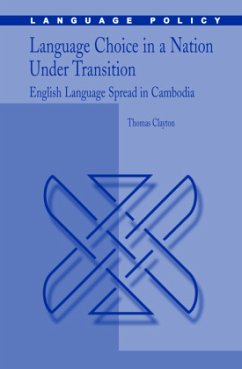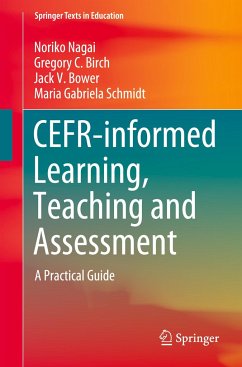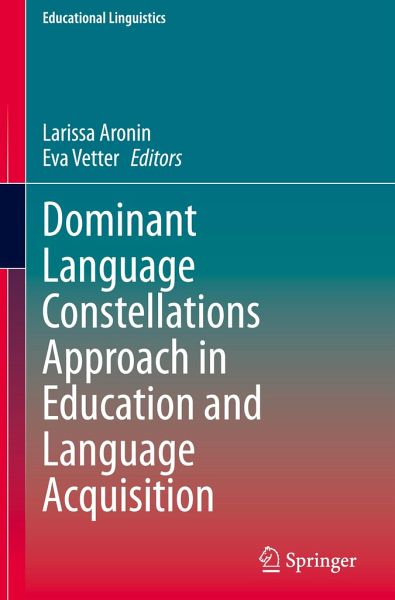
Dominant Language Constellations Approach in Education and Language Acquisition

PAYBACK Punkte
0 °P sammeln!
This volume is an important instalment in the rapidly expanding literature on multilingualism in education and language teaching. Within multilingual studies the volume is highly innovative in its application of the concept, theory and perspectives of the Dominant Language Constellations (DLC). The volume reports original research on language education policy and practice which address contemporary DLC-informed multilingualism within family settings and institutional domains such as teacher education, primary and secondary schooling, and higher education. Deploying the DLC concept as an analyt...
This volume is an important instalment in the rapidly expanding literature on multilingualism in education and language teaching. Within multilingual studies the volume is highly innovative in its application of the concept, theory and perspectives of the Dominant Language Constellations (DLC). The volume reports original research on language education policy and practice which address contemporary DLC-informed multilingualism within family settings and institutional domains such as teacher education, primary and secondary schooling, and higher education. Deploying the DLC concept as an analytical and conceptual category the chapters explore both personal and institutional life of multilingualism, enriched through visualizations. Specific chapters examine issues connected to career opportunities of adults of refugee background in Norway, multilingual transnational couples, and language teacher preparation in settings as diverse as Austria, Canada, Finland, Iceland, Israel, and the Basque Country and Catalonia in Spain.
This volume is of direct relevance to coursework students and researchers pursuing programs in education, linguistics, applied linguistics, sociolinguistics and multilingualism, but will also attract interest in disciplines such as social work and psychology. Additionally the volume will appeal to members of the general public wishing to acquaint themselves with current research and thinking on critical issues in multilingual studies, such as learning experiences within and beyond classrooms, and aspects of public policy and institutional decision-making processes.
This volume is of direct relevance to coursework students and researchers pursuing programs in education, linguistics, applied linguistics, sociolinguistics and multilingualism, but will also attract interest in disciplines such as social work and psychology. Additionally the volume will appeal to members of the general public wishing to acquaint themselves with current research and thinking on critical issues in multilingual studies, such as learning experiences within and beyond classrooms, and aspects of public policy and institutional decision-making processes.





